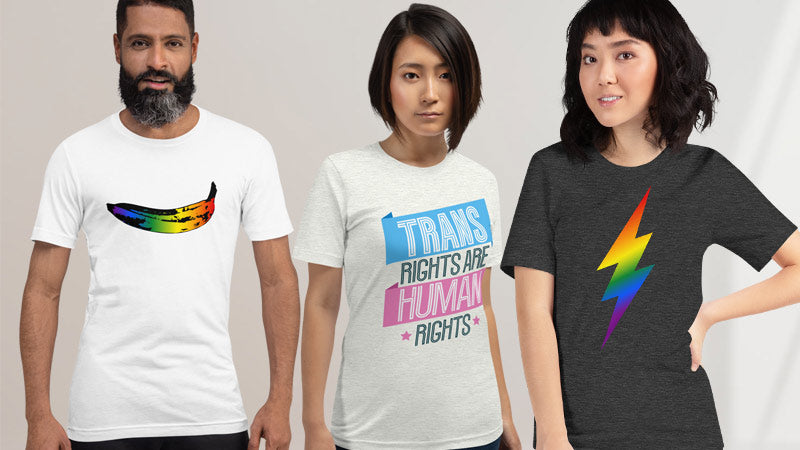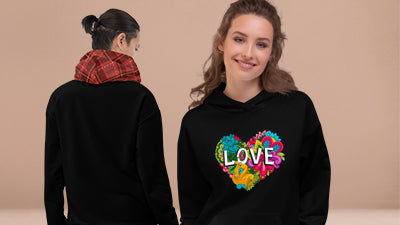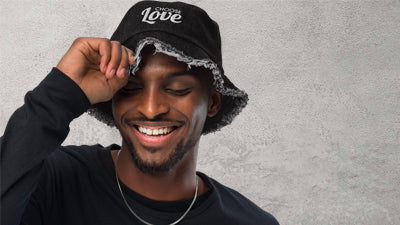What Is Agender

Agender Meaning
When somebody is agender it means they don’t identify as male or female, or with any other gender identity. They may feel a sense of disconnection from the traditional binary gender system and may choose to express themselves in ways that are not associated with any particular gender.
It’s important to understand that being agender is not the same as being genderless. While agender individuals do not identify with any particular gender, they still have a gender identity that is a part of who they are.
Like all gender identities, being agender is a deeply personal and individual experience. Each agender person’s experience may be different, and it’s important to respect their identity and pronoun preferences. It’s also important to recognize that agender individuals may face unique challenges in a world that is often built around a binary gender system.
Agender Pronouns
There are several options for agender people in terms of pronouns, so it’s always best to ask first. This is why normalising stating your pronouns when you meet someone allows everyone to calmly give their preference without it feeling uncomfortable.
Agender individuals may use gender-neutral pronouns such as “they/them/their” or “ze/hir” and use gender neutral prefix such as Mx.
In some cases they may prefer to be referred to by just using their name. So for example: ‘Emily will be talking to you about feedback from Emily’s last seminar.’
Some agender people may wish to use more than one set of pronouns to refer to themselves. So they might feel equally comfortable with they/them, he/him or she/her. You’ll often see people state their pronouns as she/they or he/they.
If someone uses a combination of pronouns, you can ask them which they prefer you to use. Their preference may be for you to use all of them interchangeably, or keep to one set. Remember that this may be because they’re using different pronouns at work, at home and with friends.
What It Feels Like To Be Agender
We asked an agender friend to write a few words on how it feels to be agender, so gendered people might understand.
“As an agender person, my experience is characterised by a lack of gender identity or a disconnect from the traditional binary gender system. This means that I don’t identify as male or female, nor do I feel a strong attachment to any other gender identity.
“Being agender can be difficult to explain to others because gender is such a deeply ingrained part of our society, but it’s important to remember that it’s a valid and real experience.
“One of the most challenging aspects of being agender is navigating a world that is built around a binary gender system. From public toilets to forms that only have options for “male” or “female,” it’s incredibly frustrating to constantly face situations where you feel ‘othered’, like you don’t quite fit in. Even seemingly innocuous things like gendered language or clothing can feel alienating when you don’t identify with the gender norms they represent.
“Another challenge of being agender is dealing with the assumptions and expectations of others. People often assume that everyone has a gender identity and that it’s a fundamental part of who we are. This can lead to confusion, disbelief, or even hostility when you explain that you don’t feel that way. Some people may try to insist that you must have a gender or that you’re just “confused,” while others may simply be unable to understand what you’re talking about.
“Despite these challenges, being agender can also be liberating in many ways. Without the constraints of gender norms and expectations, there is a sense of freedom and flexibility in how you can express yourself.
"You’re not limited by the stereotypes and roles that are often associated with gender, and you’re free to explore your own identity and interests without feeling like you have to conform to any particular gender identity.
“Ultimately, being agender is just one part of who I am, and it doesn’t define me completely. It’s a unique experience that comes with its own challenges and rewards, but it’s also something that is still not widely understood or accepted in our society.
“It’s important for people to remember that gender identity is a personal and individual experience, and that we should all be free to express ourselves in the ways that feel most authentic and true to who we are”.
continues below...
Express your agender identity anywhere
Agender Pride Day
Agender Pride Day is an annual event celebrated by members of the agender community to raise awareness and celebrate the identity of those who identify as agender. The day is typically marked on July 14th, and is a time for agender individuals to come together and celebrate their identity.
The event is an opportunity for agender individuals to share their experiences and celebrate their identity, as well as raise awareness about the agender community and the unique challenges they face. It’s also a chance to promote acceptance and understanding of the agender identity, and to educate others about the spectrum of gender identities that exist.
Agender Pride Day is a reminder that everyone’s experience of gender is valid, and that there is no one “right” way to identify. It’s a day to celebrate diversity and promote inclusivity, and to work towards creating a world where all individuals can express themselves freely and authentically.
Being agender is a valid and real experience, and it’s important to support and celebrate individuals who identify as agender. By promoting acceptance and understanding of all gender identities, we can work towards creating a more inclusive and diverse society.
Agender Flag
The Agender Pride Flag was first seen in 2014 and was created by New York artist Salem in order to increase agender visibility. The black and white stripes represent the absence of gender, the grey represents semi-genderlessness and green represents non-binary genders. Green was chosen because it’s outside the spectrum of blue-pink which is seen as the gendered spectrum.

Agender Symbol
The most used symbol to represent agender people is a simple circle with a diagonal line through it from top right to bottom left. Although an alternative symbol includes the traditional symbols for male, female and trans and a strikethrough across the central circle. The strikethrough can go horizontally or at a 45 degree angle. There is a further symbol with a single arm extending vertically. But this represents someone who identifies as genderless.

How to Support Agender People
As agender identities are so poorly understood there are many who may intentionally or mistakenly devalue or erase anyone who identifies as agender. So it’s critical to support anyone who identifies as agender by creating a safe and inclusive environment that respects their identity. Here are some ways you can support someone who is agender:
- Use their preferred pronouns: Ask the individual what pronouns they prefer to be addressed with and use them consistently. Some agender individuals may prefer they/them or other gender-neutral pronouns.
- Avoid gendered language: Try to avoid using language that reinforces gender stereotypes or binary thinking. For example, instead of asking, "Are you a boy or a girl?", you can ask, "How do you identify?"
- Listen to their experiences: Agender individuals may face unique challenges and experiences related to their identity. Listen to their experiences and validate their feelings.
- Educate yourself: Take the time to educate yourself about agender identities and the challenges that agender individuals may face. This can help you better understand and support them.
- Stand up against discrimination: If you witness discrimination or microaggressions towards agender individuals, speak up and take action to address the situation.
By being supportive and inclusive, you can help create a more accepting and affirming world for agender individuals.
Comparisons With Other Gender Terms
Is Agender the same as Trans or Transgender?
No. The meaning of transgender has morphed slightly over time. While it has always meant ‘people who do not identify as the gender they were assigned at birth’, it had traditionally been seen to mean they identified as the opposite binary. But that has evolved to become more of an umbrella term to include anyone who identifies as any other gender than the one they were assigned at birth. So while all agender people are officially trans, not all will identify as trans because of the historical associations trans has with binary genders.
Is Agender the same as Gender Non-conforming?
No. Gender nonconforming is a much wider and more general term to mean anyone who does not conform to the gender norms that are expected of them. So while it could be said that all agender people are gender non-conforming, it’s probably easier to say that there are overlaps. Certainly not all gender non-conforming people are agender.
Is Agender the same as Non-binary?
No, but agender does sit under n0n-binary.. The Non-binary identity is an umbrella term that includes those genders that do not fit the exclusively male or female binary categories. So while it’s true that agender sits within the non-binary identity, there are many non-binary people who do not identify as agender.
Is Agender the same as Genderqueer?
No. Although genderqueer is a difficult identity to explain accurately. While it has similarities to non-binary there are subtle differences, as it has been defined by so many people over time that it has come to mean different things.
Some see it as a more of a political statement, in the same way that some identify as queer rather than gay, lesbian or bisexual. Essentially it refers to “a person who does not subscribe to conventional gender distinctions but identifies with neither, both, or a combination of male and female genders”.
It's important to understand that gender identity is relative to each individual and how they identify. And every genderqueer person has a different definition of what that means to them.
Is Agender the same as Apagender?
No. Apagender means that a person is apathetic about which gender people think they are and does not feel strongly about what pronouns other people use to refer to them.




